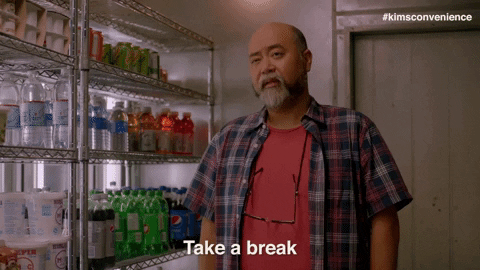Working Hours, PTO, and Vacation
What your work hours look like and everything to know about paid time off.
Purpose
Scope
Work Hours
Bright Home Energy’s standard business hours are from 8:30 am - 5 pm, so it is important we have employees available at all times during those hours to work on customer projects and answer calls.
A lunch break is permitted for every employee. Employees are free to decide if their lunch breaks will be 30 or 60 minutes; the duration of your lunch will determine your start time for the day.
If an employee chooses to take a 30 min lunch, their start time will be 8:30 am. This allows them to get their full 8 hours of work in, and be available between 9 am - 5 pm for our customers.
If an employee chooses to take a 60 min lunch, their start time is 8 am.
If an employee would like to skip lunch for any reason it would need to be discussed with and approved by their manager.
Break & Lunch Periods

Our employee breaks policy describes how employees should take breaks during their workday. We want our employees to be able to rest, eat, smoke (we encourage quitting instead!), and relax for some time during their workday to foster a pleasant workplace.
Breaks may be mandated by local law or union agreements. We will comply with these guidelines at all times.
Our employees can take the following breaks at work:
- Meal breaks. Each employee will take an unpaid 30–60 minute lunch break every day.
- Rest breaks. Our employees can take one paid 15 minute rest break for every four hours worked. So, if you work eight hours you may normally take two rest breaks.
- Restroom breaks. Employees can take reasonable toilet breaks, whenever they need to, as part of their workday.
- Breastfeeding breaks. Employees who want to pump/express milk can coordinate a lactation room with their manager, according to our breastfeeding policy. A general provision for these unpaid breaks is 15 minutes. These breaks will only be unpaid if both rest breaks have been taken that day.
Overtime Policy
Mandatory Breaks

Breaks are meant to get you away from work and recharge mentally, physically, emotionally, etc. So, please take your breaks at your designated times.
To safeguard your health and productivity, your manager may ask you to take a break if you haven’t taken one for more than five hours.
Working During Breaks

We don’t expect you to work during your breaks. However, if you need to perform any kind of work (e.g. answering calls on your phone), we will pay your normal compensation for that time. Also, you will be paid as normal when you are obliged to remain on company premises during your meal break for a work-related reason (e.g. waiting for a delivery.)
Working through breaks will need to be approved by management
Impromptu Breaks

We want our employees to feel well and be productive while working. If you need an impromptu break, just ask your manager.
If you need a break lasting longer than 15 minutes, you will need to use sick or PTO time.
How Breaks Affect Working Hours

Meal and breastfeeding breaks won’t count against your standard working hours or overtime. If possible, schedule these breaks in advance so your team will know when you will be unavailable. For certain positions, we may schedule lunch breaks to avoid any negative impact on our operations. For example, if you work in customer support, we may schedule lunch time so someone will always be available to answer customer requests.
Rest and restroom breaks are included in your working hours and are paid as normal.
Attendance Policy

Our employee attendance policy outlines our expectations about our employees’ coming to work. Being punctual when coming to work helps maintain efficiency in our workplace. This company attendance policy applies to all nonexempt employees regardless of position or type of employment.
Most employees need to collaborate with their colleagues to do their job. To make this collaboration easier, we expect you to be punctual and follow the schedule you and your manager have agreed on. If you are absent or late on occasion, you should have a good reason.
Being consistently tardy or absent can cause problems to your colleagues who may have to shoulder your work. This behavior may bring about a “bad attendance” record and you may need to go through progressive discipline.
What is Absenteeism & Tardiness?

Absenteeism refers to frequent absence from an employee’s job responsibilities. This includes not coming to work frequently or taking excessive sick leave without being able to submit doctor’s notes.
Presenteeism refers to being present at work beyond your schedule even when we don’t require overtime. This can cause you to overwork and have an impact on your productivity and job satisfaction. We want to ensure that you keep your schedule both when coming to work and leaving.
Tardiness refers to coming in late, taking longer breaks than you’re entitled to, and constantly leaving earlier from work without reason. We probably won’t mind if you’re a bit late one morning or leave a little earlier on a Friday. But, we want to make sure you generally follow your schedule and you don’t cause disruption in our workplace.
You are responsible for monitoring your working hours through BambooHR. Please be diligent in recording your hours, so you can receive your due payment.
Holidays

We observe the following holidays:
- New Year’s Day
- Memorial Day
- Independence Day
- Labor Day
- Thanksgiving Day
- Black Friday
- Christmas Day
If a holiday falls on a day when our company doesn’t operate (e.g. Sunday), we will observe that holiday on the closest business day. If you call out/unexcused absence the day before OR after a holiday, you will not receive holiday pay.
Holiday Pay
Exempt employees are entitled to their normal compensation without any deductions.
Permanent non-exempt employees receive holiday pay as a benefit after they have worked with us for more than three months.
These holidays are considered “off-days” for most employees. If you need a team member to work on a holiday, inform them at least 3 days in advance.
If you are a non-exempt employee and work on a holiday, you will receive your regular hourly rate with a premium for working on a holiday. If you are an exempt employee, we will grant you an additional day of PTO that you must take within 12 months after that holiday.
Paid Time Off (PTO)
Bright Home’s PTO policy allows employees to take paid time off (PTO) provided that the employee schedules and takes time off in a manner that ensures that all Company needs are met and the employee maintains satisfactory performance and productivity levels.
Employees receive 1 week of Paid Time Off (PTO) per year, which can be used for such needs as vacation, personal or family illness, and other personal reasons. Eligible workers must regularly work at least 40 hours a week. Employees working less than 40 hours a week are not eligible for PTO.
Your PTO starts accruing immediately after your employment start date, and you can start taking your PTO after your first 90 days. You cannot use the time you haven’t accrued yet. You will earn one additional day(s) per year after your first year with the Company.
You do not need to use PTO when taking time off work for any reason, and PTO can be taken in increments as low as four hours.
If you want to use PTO, send a request to your manager & through Bamboo. If your manager approves, you are permitted to take your leave. You do not have to specify a reason for requesting PTO.
Please note that a request for PTO on a particular date(s) may be denied should a determination be made by your manager in order to continue business operations and to provide appropriate coverage. Approval will not be given for PTO days under certain circumstances (e.g., where the employee is on a performance improvement plan, after the employee has provided notice of their intent to leave the Company and/or if the employee has given two weeks’ notice and requests PTO for the last two weeks of employment).
We understand that unscheduled absences occasionally happen; however, when possible, PTO should be scheduled at least two weeks in advance. Nothing in this policy shall infringe upon an employee’s right to take statutorily mandated Paid Sick Leave in accordance with state and local law.
You can transfer any remaining PTO to the next year. We encourage you to use your time off throughout the year.
If you leave our company, we may compensate accrued PTO with your final paycheck according to state and local law.
Sick Leave

Use your PTO or arrange for a flexible work schedule if you want to attend routine health care (e.g. doctor’s/dentist’s appointments.)
Occasionally, we may ask you to submit a physician’s note or other medical certification and/or complete a sick leave form. We will do this for insurance purposes if you are absent for more than 3 days of sick leave.
Parental Leave
Jury Duty & Voting
Exercising your civic duty is awesome! 😁

Jury Duty
If you are called for jury duty and you are an exempt employee, you can take one day off without deduction from your salary. If local or national law stipulates more days of paid jury duty leave, we will follow the law.
Election Day Voting
On election day, you can take 2 hours off to vote. You can take a paid half–day off if you need to travel a short distance to vote. If your trip lasts more days, please use your PTO.
Hourly employees may take one unpaid day off for jury duty and voting. If local or national law obliges us to provide hourly employees with paid jury duty leave, we will follow the law.
To keep good records, we ask you to bring us a copy of your summons for jury duty and a document that proves you served.
Military Leave

An employee is entitled to time off at full pay for certain types of active or inactive duty in the National Guard or as a Reserve of the Armed Forces. Any full–time or permanent part–time employee is entitled to military leave.
- A full-time employee working a 40-hour work week will accrue 120 hours (15 days x 8 hours) of military leave in a fiscal year, or the equivalent of three 40-hour workweeks. Military leave will be prorated for permanent part-time employees on the number of hours in the employee’s regularly scheduled pay period.
- Inactive Duty Training is authorized training performed by members of a Reserve or National Guard component not on Active Duty. It is performed in connection with the prescribed activities of the Reserve or National Guard. It consists of regularly scheduled unit training periods, additional training periods, and equivalent training.
- Eligible employees may use 15 calendar days per year for Active Duty, Active Duty Training, and Inactive Duty Training. An employee can carry over a maximum of 15 days into the next fiscal year.
- Up to 22 workdays of military leave may be granted per calendar year for emergency duty as ordered by the President or a State governor. This can be for law enforcement or the protection of life and property.
- Reserve and National Guard Technicians are entitled to 44 workdays of military leave for duties overseas under certain conditions.
- Military leave should be credited to a full–time employee on the basis of an 8–hour workday. The minimum charge to leave is one hour. An employee may be charged military leave only for the hours that the employee would otherwise have worked and received pay.
- Employees who request military leave for Inactive Duty Training (which generally is two, four, or six hours in length) will be charged only the amount of military leave necessary to cover the period of training and necessary travel.
- An employee’s pay remains the same for periods of military leave. The employee’s pay is reduced by the amount of military pay for the days of military leave. However, an employee may choose not to take military leave and instead take annual leave in order to retain both company pay and military pay.
- When the employee requests military leave, they must make an appropriate request and provide copies of their military orders.
Thank you for your service!